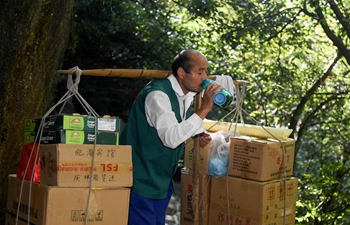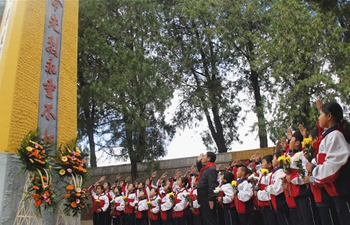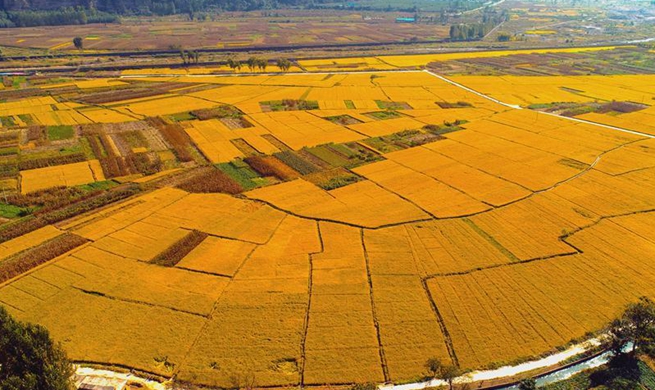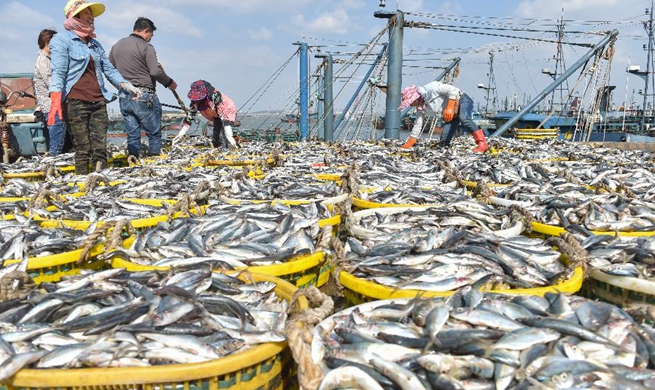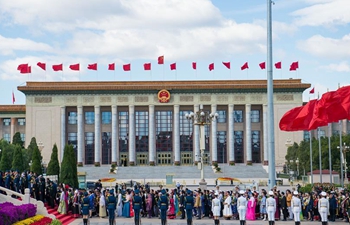WASHINGTON, Oct. 1 (Xinhua) -- Chinese scientists warned that economic losses caused by drought in the country may double, if the global temperature rises by 1.5 to 2.0 Celsius degrees above pre-industrial levels, with increasing drought intensity and areal coverage.
The study published on Monday in the Proceedings of the National Academy of Sciences identified the intensity, area and duration of drought events in China.
In the study, scientists with the Xinjiang Institute of Ecology and Geography (XIEG) of the Chinese Academy of Sciences projected drought losses in China under global temperature increases.
Regional gross domestic product under various shared socioeconomic pathways showed different results, but all pointing to a same fact, according to the study.
"Estimated loss in a sustainable development pathway at the 1.5 Celsius degree warming level increases ten-fold in comparison to the reference period 1986 to 2005, and nearly three-fold, relative to the interval 2006 to 2015," said first author Su Buda, a researcher at XIEG.
Annual average drought loss for the 2.0 Celsius degrees warming level in a growth-oriented development pathway is estimated to be approximately two times of that in the 1.5 degree warming, according to the study.
The Paris Agreement proposes to keep the global mean temperature increase to well below 2.0 Celsius degrees above pre-industrial levels, and to pursue efforts to limit the warming to 1.5 Celsius degree, in order to reduce the risk and impacts of a warming climate.
"Keeping the global average temperature increase under or equal to 1.5 Celsius degree above pre-industrial level can reduce the annual drought losses by several tens of billions of USD," said Jiang Tong, corresponding author of the study from National Climate Center of China Meteorological Administration.
China's national GDP drought-loss share has decreased from 0.23 percent in 1986 to 2005 to 0.16 percent in 2006 to 2015 due to rapid increase of national GDP. However, the trend was projected to reverse in the future, with the loss share gradually increasing under warming scenario, taking improved adaptation capacity into account, the study showed.
Drought-affected crop area averages 2,090,000 square kilometers per year for the period from 1949 to 2017, equivalent to one sixth of the total arable land, according to the study.
"More efforts on mitigation are needed, so that the 1.5 Celsius degree warming limit is not exceeded," Su said.





